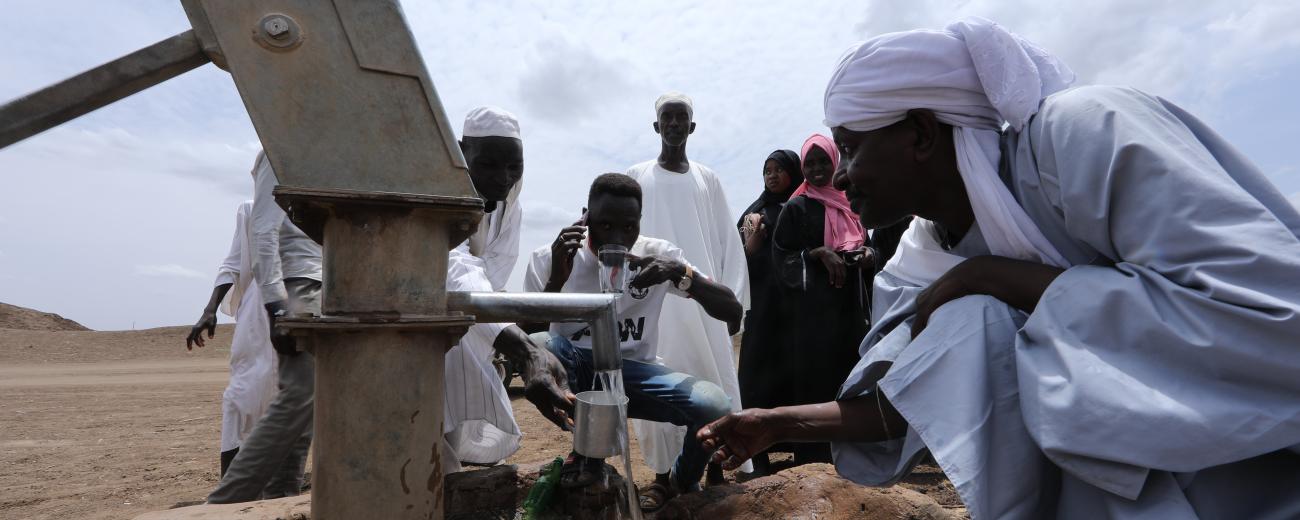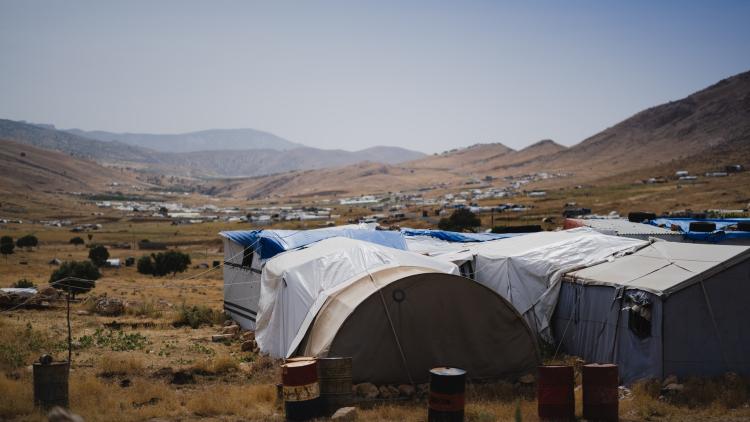How to develop a career in the humanitarian sector


Working in Cox’s Bazar during the Rohingya Refugee Crisis led Oyessorzo Rahman Chowdhury Prithibi to start studying MSc Humanitarian Action online. Oyessorzo combines doing an online degree at SOAS with her work in the humanitarian sector at her base in Nairobi. She offers advice for anyone hoping to develop a career in humanitarianism.
Work and study at the same time
I was working in the Rohingya Refugee Crisis in Cox’s Bazar when I realised that I wanted to continue my career in the Humanitarian sector. I was becoming more and more passionate about working for vulnerable people all around the world. I recognised that to be more efficient in what I do, I would also need an academic and structural understanding of the field of Humanitarian Action. However, I faced a dilemma as I liked my work a lot and didn’t want to take a break to study.
So, I looked for options that would allow me to work and study at the same time. After days of research, I found a perfect match in the MSc in Humanitarian Action (Online) offered by SOAS. I was already aware that SOAS was one of the best universities in the field of development studies, so I was confident that I would be learning from some of the best minds.
Slow and steady
Initially, it was very difficult to return to academia because it had been a few years since I had completed my undergraduate degree. It was also difficult because I did not expect a part-time MSc to be so demanding. However, soon I realised that the secret was being “slow and steady”. So, rather than trying to finish all the weekly readings and activities during the weekend, it helped to do them bit by bit throughout the week. Moreover, as I learned to manage the coursework better, I also started enjoying the materials because I could relate them to my work. Sometimes, I would even find suggested articles/materials by people I have worked with, which is always a pleasant surprise.
The course delivery works well and is very structured. I especially like the modules that have weekly recorded lectures by the lecturers and suggested documentaries/movies. Moreover, I find the structure of the e-activities (tasks) very useful as they are aimed at preparing you for the final essays and, eventually, your final dissertation.
I started enjoying the materials because I could relate them to my work. Sometimes I would even find suggested articles and materials by people I have worked with, which is always a pleasant surprise.
I study modules that directly link to my work
I have enjoyed all the modules so far. However, my favourite modules, up until now, are Humanitarian Principles and Practice, and Drugs, Conflict and Development.
The Humanitarian Principles and Practice were directly linked to my work. Everything I learned in that module helped me better understand the dynamics of humanitarian action, which I think has also been reflected in my work as an analyst.
I chose the Drugs, Conflict and Development module because, in my work for the Rohingya Refugee Crisis and for the Afghanistan response, I saw the heavy influence drugs have on a crisis, conflict and the country in general. This intrigued me, and I wanted to learn more about the dynamics between drugs and conflict. So far, the module has been really interesting, and I have been amazed by the intricate relationships between drugs, economy, governments and people.
Working as a Senior Analyst for the Sudan response
I combine my studies with working as a Senior Analyst for the Sudan response with iMMAP remotely from Nairobi. iMMAP has set up a Situation Analysis cell to inform stakeholders of the current conflict in Sudan and how it affects the humanitarian situation and access. We aim to develop an in-depth analysis to help stakeholders stay abreast of the situation and make informed decisions regarding the implementation of humanitarian programmes. We also support stakeholders in designing assessments and analysing data.
Look beyond the numbers and figures, and consider that beyond the numbers are the lives of people and their individual experiences.
I learnt to go beyond the surface
The MSc in Humanitarian Action has aided my work because it teaches you to think critically. In all the modules, you are encouraged to explore the materials from different perspectives. Course instructors do not just want you to summarise the content, but encourage you to go beyond and try to understand the agenda behind one’s work. This has really helped me in my role as an analyst because, very often, what may seem like the issue is just the tip of the iceberg, and we have to go beyond the surface to bring out the root causes.
No two crises are exactly the same
Ultimately, my ambition is to work in humanitarian policy development. Currently, I want to focus on working in different crises so that I have a good contextual understanding because I have learned in this programme and in my work no two crises are exactly the same, and having contextual understanding is essential in developing policies or at least for policies to be effective.
Working in the humanitarian sector, we come across policies that do not consider the specific context of the field dynamics, which ultimately makes them inefficient. I hope to be able to advocate for policies that would accommodate and adapt according to the needs of the people on the ground.
Look beyond the numbers
To someone hoping to work in the field of Humanitarian Action, I would say to look beyond the numbers and figures and consider that beyond the numbers are the lives of people and their individual experiences.
About the author
Oyessorzo Rahman Chowdhury Prithibi is a senior analyst for iMMAP and is studying for the MSc Humanitarian Action (Online).
